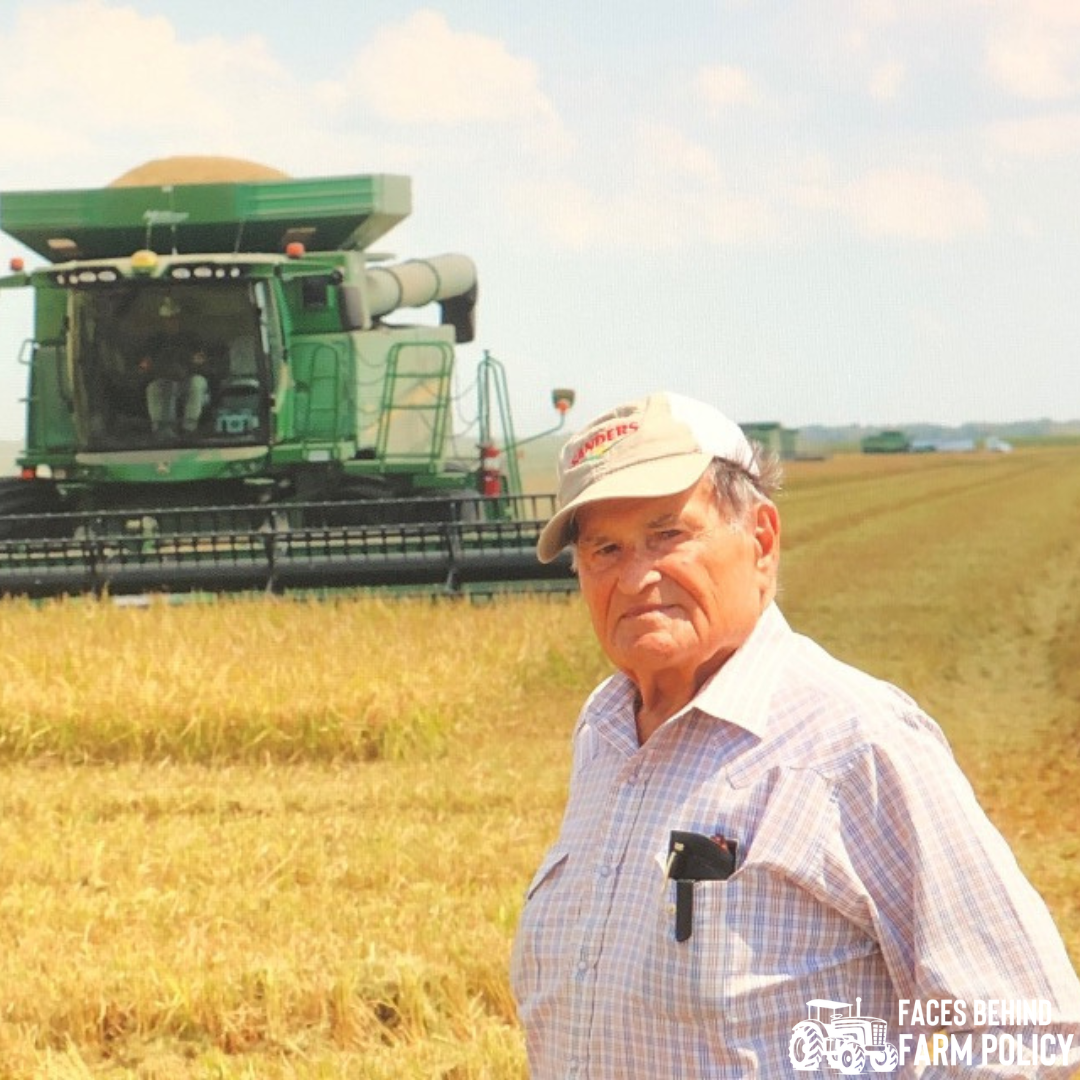Faces Behind Farm Policy: Joe Aguzzi
Joe Aguzzi has been farming for so long that he remembers a time when mules plowed his family’s fields.
Today, you’ll still find Joe, now 98 years old, out in the field. Instead of relying on mules, he is now utilizing technological advancements like precision agriculture to get the job done. Joe is a first-generation American, and his grandparents came to America in 1895 as laborers. Michael, one of Joe’s grandsons, described how Joe’s grandparents didn’t exactly experience the American dream.
“There was a promise, and a lot of things didn't necessarily work out. They were lucky to kind of escape some of that and make a better life for their themselves and their children and generations after that,” Michael said.
The values of hard work and determination instilled in Joe through working on his family farm in the 1940s would serve him well in raising his own children.
At 18, Joe diverged from the typical adolescent path by enlisting as a United States infantry scout during World War II. Upon returning home with his brother, Victor, there was no question that Joe would pick up farming. His father sold them 40 acres, laying the foundation for their agricultural legacy.

Despite his choice to not pursue a formal education beyond high school, he emphasizes the necessity of higher education in today's era of precision agriculture.
“Take someone like me with no more than a high school education... you need to have more than that now to farm because of all the computers,” Joe said.
Joe is grateful that he has been able to witness the advent of advanced technology that makes everyone’s jobs easier
“When something came out, you always were glad to get it because it's so much better,” Joe said.
Adopting the newest precision ag technology is not without challenges, regardless of a farmer’s age. Michael noted that with new equipment comes a price tag, in addition to challenges with repairs.
“This equipment has so much technology on it, that when the equipment shuts down... for a computer chip or code... it shuts down the engine and inhibits our ability to go to the field,” he said.
Much of farming is dependent on time and weather, which Joe said is his greatest constant challenge. Timeliness is everything in farming, and harsh weather can make or break that year’s crop.
“The biggest challenge is weather. When it’s wet, you leave it alone. When it’s dry, you work,” he said.
If a farmer’s tractor breaks down in the middle of planting, a storm can swiftly come through and flood the fields. Jokingly, Joe said the best way to address scenarios like that is to, “have two of everything in case something breaks... (then) you can get the job done anyway.”
Yet, Joe remains resilient, adapting to change and embracing progress.
And it is fair to say he has no intention of hanging it up anytime soon. Born and raised on the farm, Joe couldn’t fathom doing anything else with his life. He remains the patriarch and overseer of his family's farm, consisting of his sons, grandsons and nephews.
“I’m the daddy of it all,” Joe said. “I had a big family. I had seven children, and I tried to raise them up so they could go to college and make a living for themselves.”
Every generation contributes to tilling the same soil that has sustained them for over a century, and all four generations can be found on the farm tending to the rice and soybeans in the summertime.

Having lived through the transition from mule to motor, Joe has seen a great of change across the industry. While one may believe that would leave him in a less than optimistic mindset about the future of agriculture, he made it clear that there is nothing else he’d rather be doing for living.
"It's a good, healthy life. I wouldn’t trade it for anything else,” Joe said.